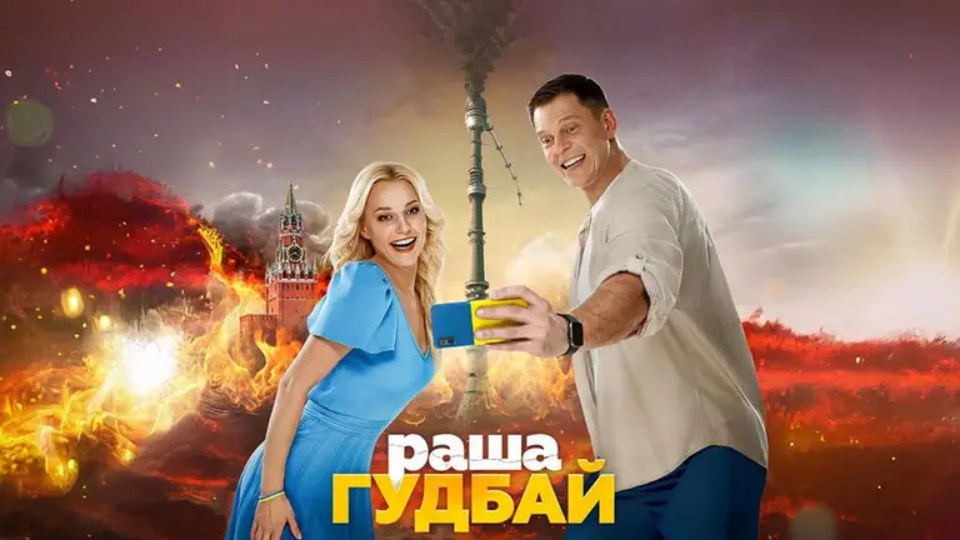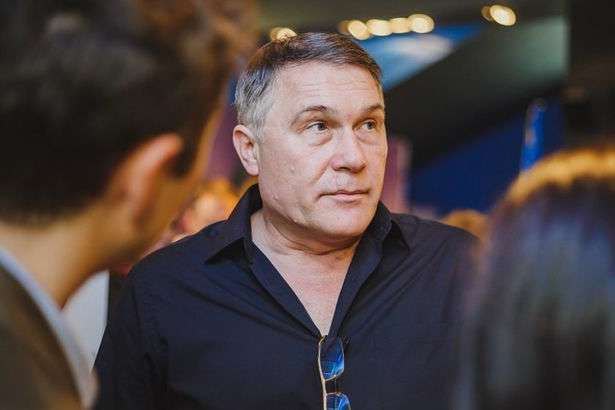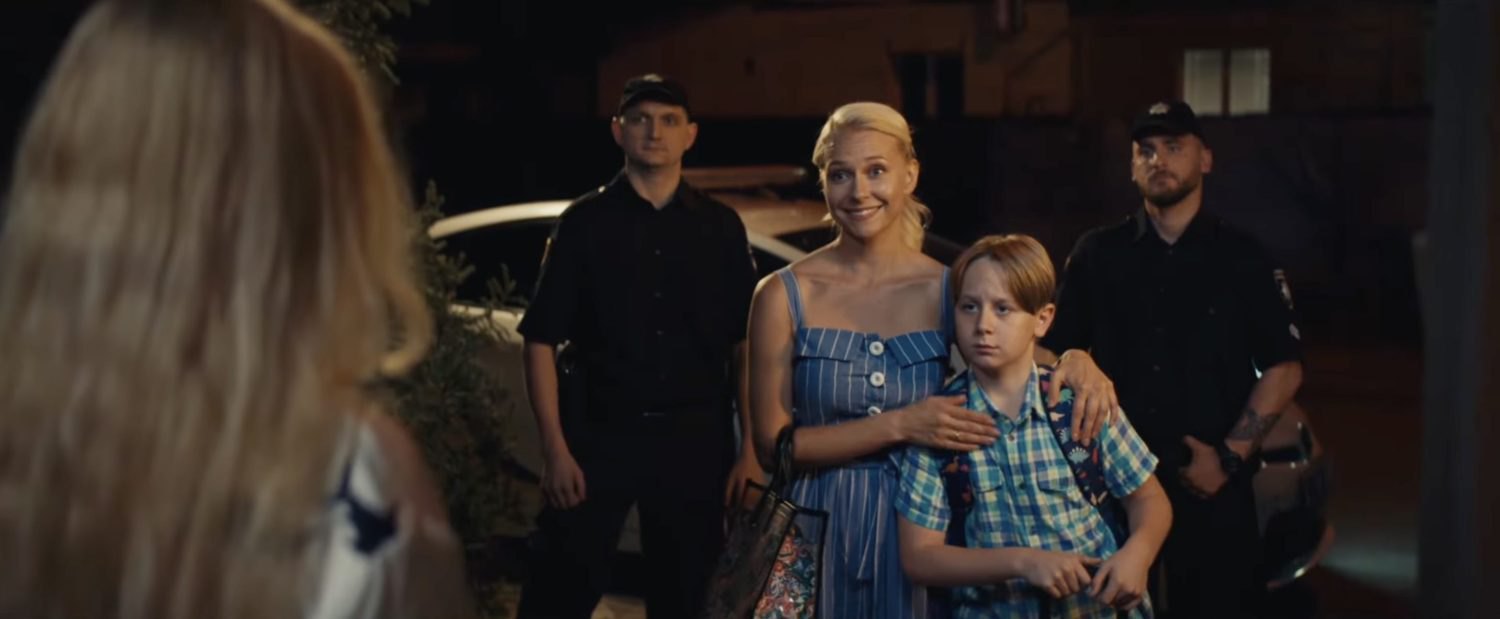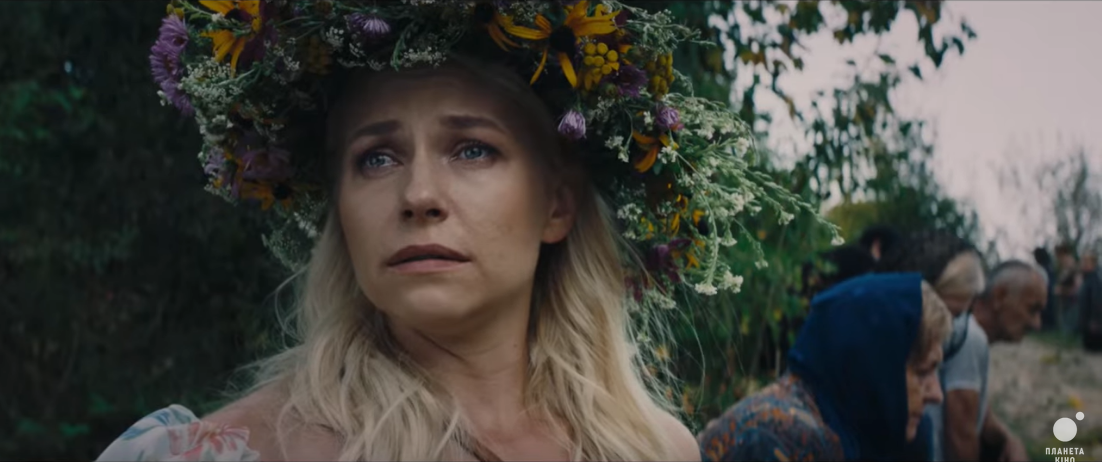
Marharyta Vlasova lives in Horlivka, a city occupied since 2014, and her life embodies the so-called “DNR dream”: her husband is an FSB colonel (which is odd, given that the so-called DNR has its own punitive body, the MGB), and she is the host of the local TV channel Donbass TV. The channel broadcasts Russian propaganda daily, spreading stories about “crucified boys” and other fabrications.
One day, the Russian Volunteer Corps (RVC) storms into Horlivka, prompting an alarmed Marharyta and her son to join an evacuation convoy. But instead of reaching Moscow, as she expects, they are accidentally taken to Uzhhorod. There – by sheer coincidence – she encounters her cousin, her cousin’s husband from the SBU, and her former boyfriend.
Like an anatomical atlas that meticulously depicts the structure of every human organ, Oleksiy Kiryushchenko’s film rasha goodbye lays bare the clichés, flaws, and bad taste of Ukrainian television production from the late 2000s to early 2010s.
Kiryushchenko has built his career almost entirely as a television director. His most well-known projects include the Russian sitcoms My Beautiful Nanny and Who’s the Boss, which explored issues of gender and social inequality, as well as the Ukrainian political sitcom Servant of the People. rasha goodbye follows a similar formula, blending situational comedy with sentimental melodrama and a dash of spy absurdity.

The film revolves around the protagonist’s transformation – from a top propagandist and ideological collaborator into a true Ukrainian patriot. To achieve this, Kiryushchenko employs the full arsenal of television kitsch at his disposal. He loads the comic elements with extended KVN-style sketches about the heroine’s attempts to adapt to life in a Ukrainian city. These sketches rely on overused memes, such as “laboratory pigeons” or “eating Russian-speaking babies.”
To prevent this precarious Leaning Tower of Pisa of third-rate humour from collapsing too soon, Kiryushchenko injects a subplot of “security force comedy” into the story. The SBU characters are portrayed as so naïve and incompetent that the real SBU might question the intent behind such a depiction. In this version of reality, the border with Hungary is easily breached, hidden saboteurs lurk in Uzhhorod, and the SBU leadership remains oblivious to the fact that its operatives have close relatives among top collaborators.
Kiryushchenko reinforces the narrative with what he has mastered best from years in Russian and Ukrainian television production – the classic melodrama, often dismissed as “soap opera” due to its reliance on clichés. Without dwelling on details, the film delivers both a sisterly reunion after a long-standing quarrel and the rekindling of a forgotten romance. There are dramatic twists involving the child’s true father, an ambiguous (though not explicitly intimate) connection between Marharyta and her SBU-affiliated relative, and a faintly sketched theme of reconciliation between adults and children – so vague that it seems included merely to justify the children’s presence in the story.

Kiryushchenko weaves this entire collage of 2000s-era television tropes into an overtly sentimental exploitation of the war theme, filling the film with artificially poignant scenes of shelling victims and military funerals. The emotions meant to move the audience feel so contrived that they provoke an urge to shout: “You can’t do this – these are real people’s tragedies!”
The film culminates in a monologue delivered by Marharyta to Russian propagandists – one that suspiciously resembles the clichéd phrases circulating on social media in the first days of the invasion, when others were still trying to reason with the Russians. This speech does not convey a sense of the protagonist’s catharsis; instead, it feels like the closing moment of a long KVN performance, where the team captain shifts awkwardly from comedy to solemnity.
The film’s ending itself evokes the aesthetics of Soviet lubok folklore, where the transformed heroine reunites with her family and newfound love, and everyone embraces joyfully – only here, they do so in embroidered shirts and to the music of Pianoboy.

rasha goodbye is a clumsy hybrid of a low-quality sitcom and a television melodrama. Its prolonged comedic sketches might have aligned it with the established genre of Ukrainian critical comedy. However, its overblown patriotic kitsch and tangled jungle of sentimental clichés turn it into yet another attempt to resurrect the spirit of early 2010s television – one that is now seeping into Ukrainian cinema.
This film cannot serve as an “inoculation against the Russian world” because it does not encourage reflection; instead, it merely regurgitates well-worn platitudes while exploiting the theme of war. The only inoculation this film provides is against good cinema.








